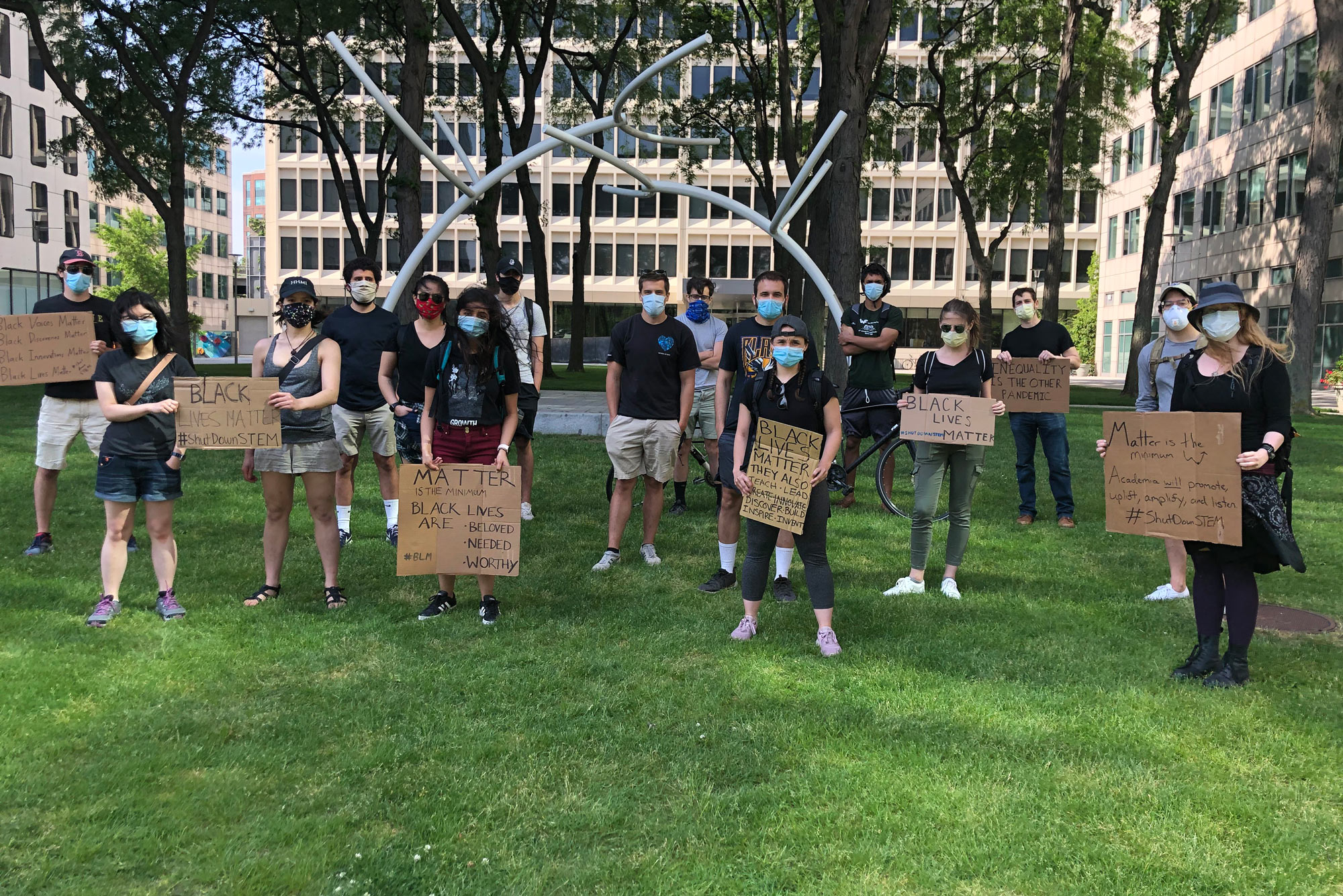News release
From:
Nature special issue on racism in science
A historic special issue on racism in science, the first guest-edited issue in Nature’s more than 150-year history, is published this week as part of commitments made by the journal following the killing of George Floyd and #ShutdownSTEM.
The special issue is edited by Melissa Nobles, Chad Womack, Ambroise Wonkam and Elizabeth Wathuti.
The extensive content includes a Comment in which three authors — Jedidiah Carlson, Brenna Henn and Sohini Ramachandran (one of whose research papers was referenced by the white supremacist who murdered ten Black people in a store in Buffalo, New York in May) — argue that the efforts made so far in the scientific community to counter the latest resurgence of white supremacy are insufficient. They outline changes that are needed not just to how genetics research is communicated, but also to how geneticists conduct their research in the first place.
A series of News Feature profiles five researchers from around the world and the racism they and others face today in science. They include Nadine Caron, the first Indigenous female surgeon in Canada, and Martha Gilmore, a US planetary geologist who describes racism as a ‘constant hum’ she has encountered throughout her career.
Another News feature explores how the diversity gap in computer science has impacts for all of society; it explores how this problem needs to be addressed at all stages of education and in the work force to help make computer science more inclusive for Black people and for other under-represented groups.
In the Careers section, a feature describes how leading UK scientific institutions (including Imperial College London, University College London, the Royal Society and the Linnean Society) are grappling with their racist and colonialist pasts and the steps they are taking to address them. This feature marks the first in a series exploring how various scientific institutions are making disciplines and policies more inclusive.
In a News & Views forum two groups of experts assess how pulse-oximetry measurements depend on skin pigmentation. In a News & Views in retrospect article, computer scientist Abeba Birhane celebrates the impact of a paper that audited commercial facial-recognition algorithms, revealing their inability to accurately classify people with dark skin.
In a signed Editorial, the guest editors write that, in guiding this special issue, they have shared their expertise and lived experience in the hope and expectation that the institutions of science will accept the necessity of decolonizing research, ending racism in science and working towards restorative justice and reconciliation. “This special issue is our message in a bottle”, they write.



 International
International



